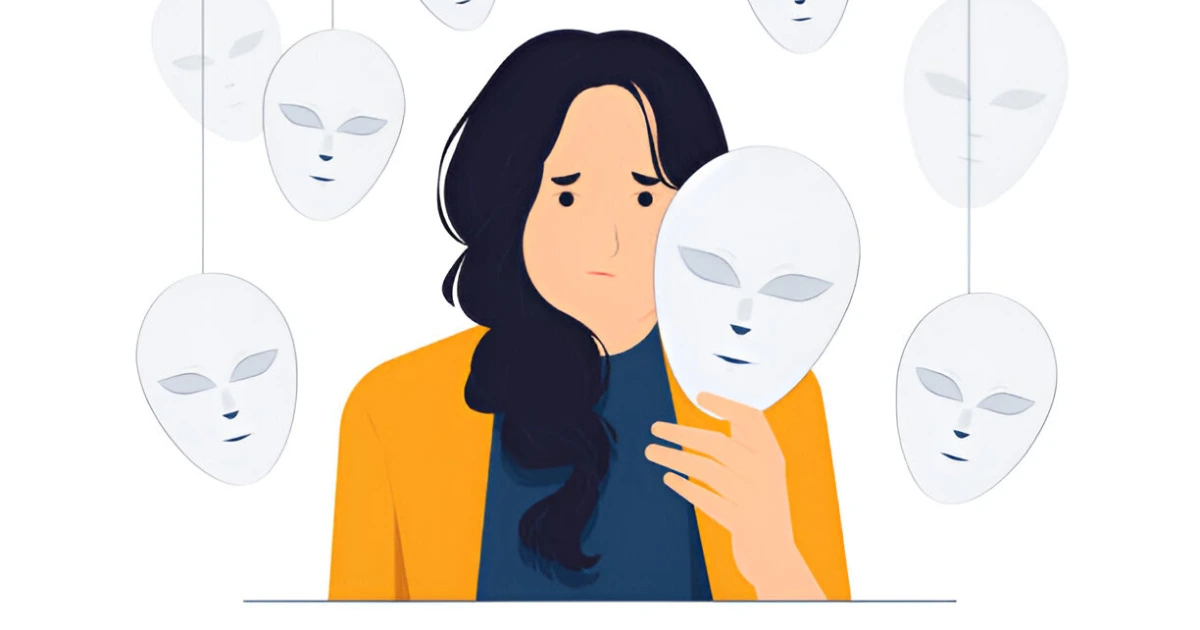7 Dangers of Suppressing Emotions for Your Well-Being
Emotions are a natural and essential part of being human. But what happens when we push them down, pretending they don’t exist? Suppressing emotions might seem like an effective way to avoid discomfort, but in reality, it can cause significant harm to your well-being. In this article, we’ll explore the dangers of suppressing emotions, how emotional repression affects your mental health, and why you should start embracing your feelings.
Table of Contents
What Does Suppressing Emotions Really Mean?
Suppressing emotions refers to the act of avoiding, hiding, or pushing down your feelings. This could involve pretending you are fine when you’re not, or avoiding situations that might trigger strong emotions. While it might feel easier in the short term, repressing your emotions can lead to a buildup of stress and negative consequences over time.
If you’re constantly bottling up your emotions, you may find that over time, they affect not only your mental health but also your physical health, relationships, and overall well-being.
The 7 Dangers of Suppressing Emotions
1. Increased Anxiety and Stress
When you suppress emotions, you’re essentially avoiding the emotional experience. While this might seem helpful in the moment, it creates more tension in the long run. Repressing your emotions prevents your body from processing stress in a healthy way. Over time, this can lead to increased anxiety and an ongoing feeling of unease.
- Why? Your body and mind are wired to deal with emotions. When you suppress them, your stress response system is constantly on alert, which can lead to chronic anxiety and heightened levels of stress.
- What You Can Do: Learn to acknowledge and process your emotions. This can help you feel more grounded and reduce feelings of anxiety.
2. Physical Health Problems
Emotional repression doesn’t just affect your mind—it can also take a toll on your body. Chronic emotional suppression can increase the risk of heart disease, high blood pressure, and other physical ailments. The mind-body connection is strong, and ignoring your emotions can lead to physical symptoms such as headaches, muscle tension, and digestive issues.
- Why? When emotions are repressed, the body holds onto stress. This can affect your nervous system and contribute to long-term health problems.
- What You Can Do: Engage in activities that help release pent-up emotions, such as exercise, journaling, or talking to someone you trust.
3. Emotional Outbursts
When emotions are suppressed for too long, they don’t just disappear—they build up. Eventually, you may find yourself having emotional outbursts, even over small issues. These outbursts can negatively affect your relationships and your sense of control.
- Why? Bottling up emotions leads to an emotional buildup that can’t be contained indefinitely.
- What You Can Do: Practice emotional regulation techniques to manage your feelings in a healthy, controlled manner.
4. Increased Risk of Depression
Suppressing emotions can also increase the likelihood of developing mental health problems, such as depression. When feelings are ignored, it becomes harder to process them, which can lead to sadness and hopelessness building up over time.
- Why? When emotions are repressed, you may feel disconnected from your own emotional state, making it harder to process sadness or disappointment in healthy ways.
- What You Can Do: Seek therapy or counseling to explore and address suppressed feelings.
5. Strained Relationships
Emotions are an essential part of human connection. Suppressing your emotions can create distance between you and others, leading to misunderstandings, lack of intimacy, and difficulty in expressing yourself authentically.
- Why? When you don’t express your emotions, others can’t truly understand what you’re going through. This can cause them to feel disconnected from you.
- What You Can Do: Foster open and honest communication with those around you, especially in your close relationships.
6. Loss of Self-Awareness
If you frequently suppress emotions, you may start losing touch with yourself. Over time, you may become disconnected from your own feelings, making it difficult to understand your desires, needs, and motivations.
- Why? Emotional repression can create a barrier between your conscious mind and your true feelings, which in turn affects your self-awareness.
- What You Can Do: Spend time reflecting on your emotions and what they mean. Mindfulness and journaling are great ways to reconnect with your inner self.
7. Poor Mental Health Outcomes
Suppressing emotions can lead to a range of mental health problems, including anxiety, depression, and even PTSD. By failing to deal with your feelings, you’re not allowing yourself the opportunity to heal from past emotional wounds.
- Why? Emotional repression can trap negative feelings inside, preventing them from being processed and resolved.
- What You Can Do: Seek professional support, such as therapy or coaching, to address repressed emotions and improve your mental health.
Understanding Emotional Repression and Mental Health
Emotional repression is the act of keeping your feelings locked away. This can occur consciously, when you intentionally avoid dealing with your emotions, or subconsciously, when your mind shuts down certain feelings in an attempt to protect you. However, emotional repression is often counterproductive. It might seem like a way to cope with difficult situations, but it creates a range of negative consequences, especially in terms of mental health.
How Emotional Repression Affects Mental Health
Mental health problems are closely linked to emotional repression. When emotions are not properly processed, they can manifest as psychological conditions like depression, anxiety, or even more severe disorders such as PTSD. This is why it’s essential to face your emotions head-on, rather than avoiding them.
How to Overcome Emotional Repression
- Acknowledge your feelings: The first step to overcoming emotional repression is simply to admit that you are feeling something. Denial only prolongs the suffering.
- Talk it out: Find a trusted friend, family member, or therapist who you can share your feelings with.
- Express yourself creatively: Write in a journal, paint, or use music to release and explore your emotions.
- Practice mindfulness: Techniques like deep breathing or meditation can help you connect with your emotions in a healthy way.
FAQ Section
What is the difference between emotional suppression and emotional repression?
Emotional suppression is a conscious effort to avoid or hide feelings, while emotional repression is unconscious. Both involve not dealing with emotions, but emotional repression typically occurs without the person realizing it.
Can emotional repression cause physical illness?
Yes. Suppressing emotions can lead to chronic stress, which in turn affects the body. This can increase the risk of conditions such as high blood pressure, heart disease, and chronic pain.
How can I start addressing my suppressed emotions?
Start by acknowledging your feelings. Practice expressing them in safe, healthy ways, like journaling, talking to someone you trust, or seeking professional help. Therapy can be especially helpful in dealing with deep-seated emotional repression.
Conclusion
Suppressing emotions may seem like a simple way to avoid pain or discomfort, but it can have serious long-term effects on your mental and physical health. From increased anxiety to strained relationships, the dangers of emotional repression are real and significant. By learning to process and express your emotions in a healthy way, you can protect your well-being and live a more fulfilling life. Start acknowledging your emotions today, and take the first step toward a healthier, more balanced life.







